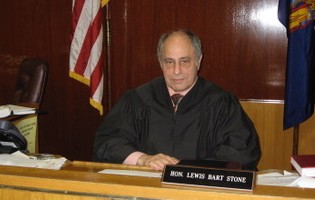 I retired as a partner of Rogers & Wells on December 31, 1999. Two other partners, Tony Essaye and Dick Winfield, were also then retiring and organizing ISLP to utilize the expertise of experienced retirees to help countries emerging from communism, colonialism, and autocracy to aid them to transition to democracies and market economies.
I retired as a partner of Rogers & Wells on December 31, 1999. Two other partners, Tony Essaye and Dick Winfield, were also then retiring and organizing ISLP to utilize the expertise of experienced retirees to help countries emerging from communism, colonialism, and autocracy to aid them to transition to democracies and market economies.
I let Dick know I was open to volunteering. An early request came from Brčko, Bosnia, following the Dayton accords in 1995 which ended the Bosnian war. Brčko was the final item decided at Dayton. Before the war, Brčko was a heavily Muslim town which separated two parts of the predominantly Serb area now known as Republika Skrpksa. By the end of the war, most Muslims from Brčko had been driven out and many others were “ethnically cleansed” (slaughtered). The other contender for Brčko was the Bosniak-Croat Federation who objected to allocating Brčko to Republika Skrpska as it would reward their actions. To close negotiations, the parties agreed to place Brčko in “legal condominium” of both as a self-governing free city. As this invention had little precedent and as it was necessary to have some law in Brčko, the Accords created a Law Revision Commission of three Scandinavian jurists to draft laws to allow Brčko to function. The Commission hired a small staff of local lawyers, balanced among the three ethnic communities. While progress was made on a Criminal Code and City government, the local lawyers were unfamiliar with legal structures necessary to support a market economy, as prior to Tito’s death which led to the war, Yugoslavia was a communist country with socialist law. My role was to make recommendations to the staff lawyers to enable Brčko to function in a market economy. As my commitment was for a month, I prioritized a number of areas which I believed essential. They included resolving claims to commercial properties which had been serially confiscated by Nazis and communists from their prior owners, banking and insurance regulations to allow non-Brčko banks and insurers to function, a corporation law to permit Brčko corporations to be formed and non-Brčko corporations to qualify to do business, commercial law to provide certainty of contracts, and a labor law to minimize industrial disputes and protect workers from exploitation. My final product was a long memo outlining what was to be done and how. I included a draft banking law as an example, and a program for public taking of commercial real estate and its subsequent auction, transferring all claims of prior owners to the proceeds.
My experience on the New York Governor’s staff writing legislation, service as a New York Commissioner of the National Conference of Commissioners of Uniform State Laws, and experience in Moscow after the fall of communism, where I joined a New York State Bar Association group to lecture on banking law and lending, prepared me for Brčko.
After I returned to New York I became an Acting Justice of the New York Supreme Court.
